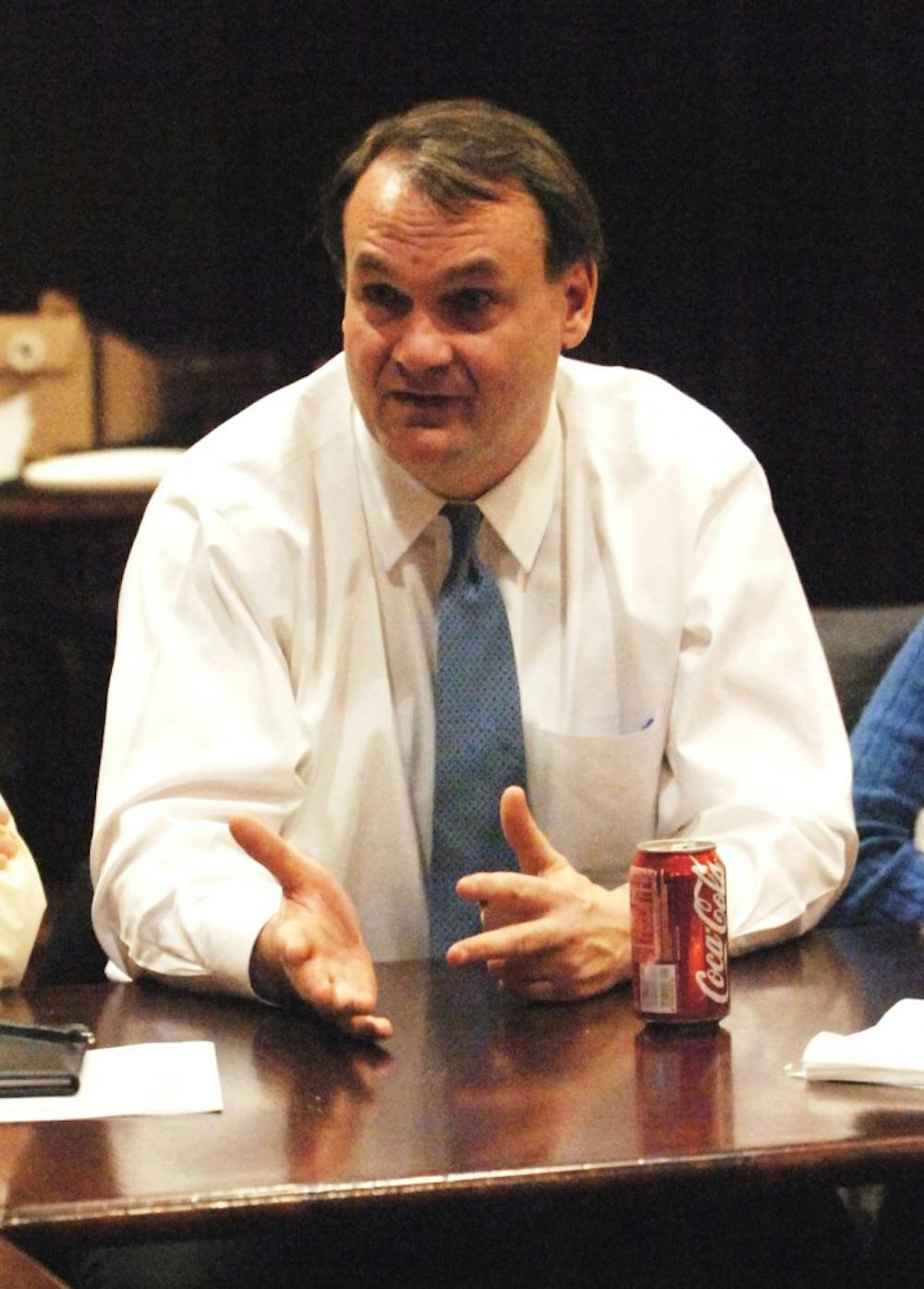Michael Fitts was a budding law professor when he arrived at the Law School.
But nearly 29 years later — 14 of which he served as dean of Penn Law — Fitts is preparing to depart for his new post as President of Tulane University. And the impact he had in his tenure leading a distinguished law school will not be soon forgotten, as he left an indelible mark on virtually every aspect of the institution.
As the year 2000 signaled the start of a new millennium, Fitts’ deanship ushered in a new era of innovative leadership for Penn Law, one that the school desperately needed at the time.
“When [Fitts’] deanship began, we had just went through two years without a dean, so there were a lot of jangled nerves here,” said Penn Law professor Sarah Barringer Gordon, who joined the faculty in 1994. “The school really needed steady leadership and a sense of confidence.”
Once Fitts took the helm, the Law School found itself in more-than-capable hands. By 2000, Fitts had already spent 15 years at Penn Law, teaching students and fostering his passion for legal education.
“What drew me to legal education was that it has both an intellectual and a normative component,” Fitts said. “I don’t know of another field that teaches people how to think ... and at the same time focuses on coming to conclusions about what can make the world a better place.”
Fitts’ commitment to ever-evolving scholarship was the driving force behind a number of initiatives that he spearheaded throughout his tenure.
One of Fitts’ biggest achievements was his expansion of interdisciplinary programs at the Law School, which offer students the opportunity to earn a law degree and simultaneously pursue advanced study in fields ranging from business to philosophy. In fact, Fitts oversaw the creation of 35 joint-degree and certificate programs over the course of his deanship, and two-thirds of the class of 2014 will graduate from one of those programs.
Fitts’ promotion of a cross-disciplinary approach demonstrated his key insights into shifts in the nature of modern legal practice.
His interdisciplinary programs are at the “cutting edge of legal education,” Gordon said, reflecting on how this crossdisciplinary approach was beneficial to Penn Law graduates who interact with various fields on a daily basis.
“Lawyers are much less isolated and insulated than they used to be,” said professor Michael Knoll, who is involved with the J.D./MBA joint degree program. “Lawyers today need an understanding of substance so that they can understand where clients are coming from.”
The size of Penn Law’s faculty also grew by 40 percent over the past 14 years, also in response to the emergence of new types of legal practice.
“There were all sorts of areas in law that we just weren’t covering in new fields such as intellectual property, health law and communications law, and we had fewer people than we needed in the field of corporate law,” Fitts said.
Several professors pointed out that the greater number of faculty members specializing in a variety of disciplines has contributed to an engaging academic environment at Penn Law.
“It makes the intellectual atmosphere of the school more fruitful because now it is very easy if you want to find out what a first-class economist or a first-class historian thinks about a certain topic,” Law School professor Kermit Roosevelt said. “You can just walk right down the hall and find out.”
Aside from achievements at the curricular level, Fitts improved other parts of the student experience at Penn Law as well. Financial aid availability for Penn Law students doubled during Fitts’ years, as did the number of students who were guaranteed summer funding for public service internships. The added appeal of Fitts’ student initiatives certainly showed: The number of applicants to the J.D. program grew by 57 percent from 2000 to 2013.
Although he began his deanship with a few clear goals in mind, Fitts ended up surprising himself with some of the projects that he undertook. One such endeavor was the $33.5 million creation of Golkin Hall, which added 40,000 square feet to the Law School campus.
“Initially I was not interested in bricks and mortar, but I realized that building up the academic programs and the faculty required the bricks and mortar to support the nature of the complete Law School campus,” Fitts recalled.
Building projects such as the Golkin Hall addition were largely made possible by Fitts’ savvy fundraising strategies. Fitts’ Bold Ambitions capital campaign raised $200 million since it was publicly announced in 2006.
As Fitts’ time at Penn Law comes to a close, it is clear that many at the Law School will be bidding farewell to not only a visionary leader, but also a trusted colleague and friend.
“[Fitts] has given unstintingly of his time and care to us at a very personal level, and he has earned our loyalty over the years,” Gordon said.
While Fitts, a native of West Philadelphia, is sad to leave the home that he has made for himself in his 29 years at Penn Law, he is excited for his next steps at Tulane.
“It will be fun to make the transition, but I love [Philadelphia], and I will return often,” Fitts said.



